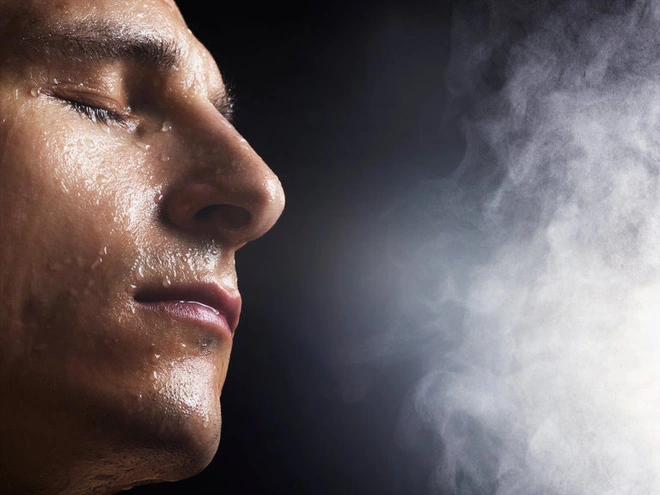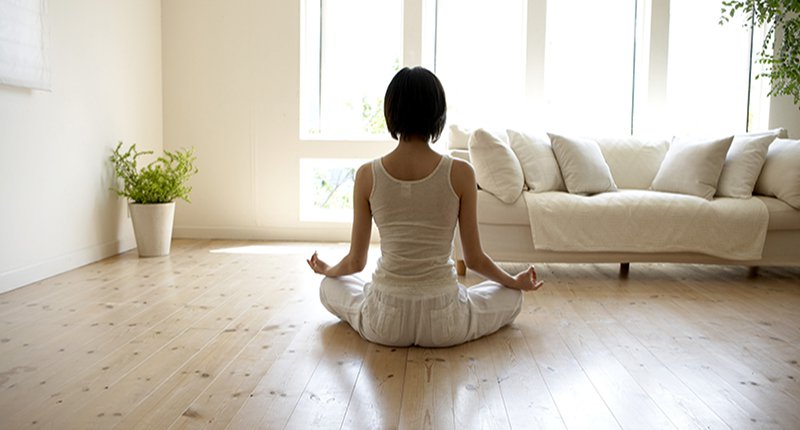When you meditate, you might find yourself sweating, and it can seem a bit puzzling at first. After all, meditation is usually seen as a calm and stationary practice, so why the sweat? There are a few reasons this might happen, and understanding them can provide reassurance that it’s a normal experience for some.
Is It Normal to Sweat While Meditating?
When you meditate, experiencing some surprising bodily sensations, including sweating, isn’t necessarily bad. It’s often the unfamiliarity that can spark fear or concern, but there’s usually no need to worry[1].
Generally, meditation is expected to cool down your body. However, certain meditation techniques can increase your body temperature. During meditation, energy moves and ideally ascends, potentially generating heat. Sometimes, this awakened energy can warm your body to the point of sweating, even in cool weather. This type of sweating during meditation isn’t typically concerning.
If you feel an intense burning sensation or extreme heat in your spine, this is a signal to stop and reassess what you’re doing. Paying attention to such signs is crucial to ensure that your meditation practice remains safe and beneficial.
Does Sweating During Meditation Mean I’m Releasing Toxins?
The idea that sweating during meditation means you’re releasing toxins is a common belief, but it’s a bit more complicated than that. Sweating is indeed one way the body eliminates waste products, but the notion of “releasing toxins” through sweat during meditation deserves a closer look[2].
Firstly, it’s essential to understand what sweat is and isn’t doing. When you sweat, your body is primarily excreting water, salt, and small amounts of other substances, including some metabolic waste. However, the primary organs that remove toxins from your body are the liver and kidneys. While sweating can help regulate your body temperature and even aid in skin health, the detoxification process is much more complex and involves several bodily systems.
When you meditate, you might sweat due to the warmth of your environment, the physical relaxation your body experiences, or the emotional intensity of the meditation. While this sweating can be seen as a form of cleansing, it’s not detoxifying in the strict medical sense. Instead, meditation can promote overall well-being, which supports your body’s natural detoxification pathways.
Meditation has been shown to reduce stress, improve focus, and contribute to a healthier lifestyle, all of which can indirectly support your body’s detoxifying processes. By reducing stress, you can improve your body’s resilience and its ability to handle toxins and other stressors more effectively.
What Does It Mean Spiritually If I Sweat While Meditating?
In some spiritual contexts, physical reactions during meditation, such as sweating, are seen as manifestations of the body releasing energy or undergoing purification[3]. This is not about physical toxins but rather emotional or energetic blockages that might be clearing. For instance, if you’ve been dealing with a lot of stress or emotional turmoil, your body might be releasing the pent-up energy, showing up as sweat.
Another spiritual interpretation could be that sweating signifies intense inner work or a deep level of meditation. Just as a blacksmith forges metal with heat, you might view your body’s heat as a sign of transformation or spiritual refinement. In this light, sweating could be seen as a badge of your dedication and depth in your meditative practice.
Additionally, some might interpret sweating during meditation as a form of physical grounding. In intense spiritual or meditative experiences, you might feel very light or ethereal, and sweating can be a way your body maintains balance or stays connected to the physical realm.
Of course, the spiritual meaning you assign to your experience is deeply personal. It can be beneficial to reflect on your own feelings and intuition about what your body is communicating during meditation. Are there specific areas in your life needing attention or release? Do you feel different emotionally or energetically after meditating and sweating?
How Can I Reduce Sweating While Meditating?
If you find that sweating during meditation is distracting or uncomfortable, there are several practical steps you can take to minimize it and enhance your overall experience. Here are some tailored suggestions:
- Check the Room Temperature: Make sure your meditation space isn’t too warm. Adjusting the thermostat or ensuring proper ventilation can make a big difference. If you’re meditating outside, try to find a cool, shaded spot.
- Wear Breathable Clothing: Opt for loose, lightweight, and breathable fabrics like cotton or linen. These materials allow air circulation and help your body regulate temperature more effectively.
- Use Cooling Accessories: Consider using a small, quiet fan in your meditation space. You can also try cooling mats or cushions to keep your body temperature down.
- Stay Hydrated: Drinking water before you start meditating can help regulate your body temperature. Avoid hot beverages just before meditating, as they can increase your propensity to sweat.
- Adapt Your Meditation Time: If possible, meditate during cooler parts of the day, like early morning or late evening. This can help you avoid the heat of midday.
- Practice Relaxation: If tension or anxiety during meditation is contributing to your sweating, incorporate relaxation techniques. Deep breathing or progressive muscle relaxation before starting can reduce stress-induced sweating.
- Experiment with Different Techniques: If you find that a particular meditation style makes you sweat more, try other techniques. Movement-based practices like walking meditation might be more comfortable, or you might prefer a cooler environment like guided imagery in a natural setting.
- Mindful Acceptance: If you’ve tried everything and still experience sweating, adopting a mindset of acceptance can be helpful. Recognize the sweating as just another sensation and focus on your meditation practice, letting go of any judgment or discomfort.
During the meditation process, you should only eat and drink healthily and moderately to maintain a balanced life. A plant-based diet will help you easily enter a state of meditation because you only intake pure energy sources and avoid causing pain to animals. A vegetarian diet is the best suggestion before and after meditation.
Please note, a vegetarian diet will make your sweat smell fresher, your breath sweeter, and your body truly lighter… Above, we have answered your question about whether sweating a lot during meditation is good or bad? And a few important notes to understand when meditating.









